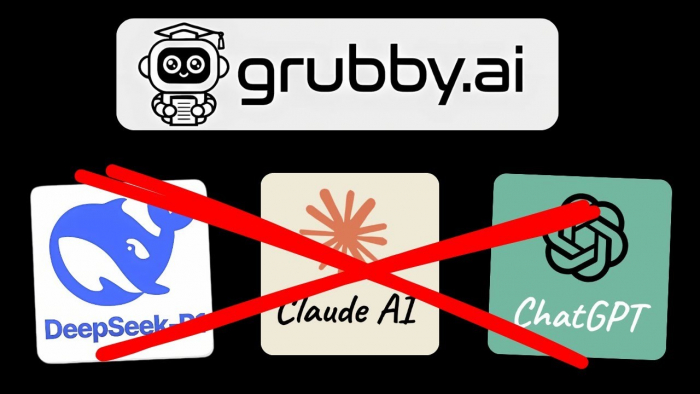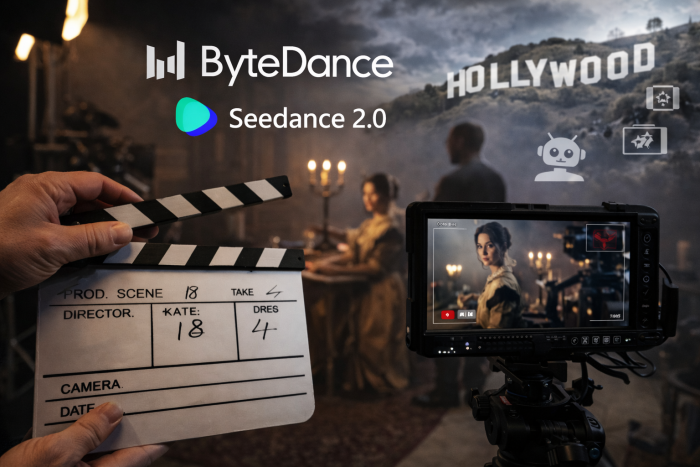Success in real estate investing has always depended on timing, site, and data. Traditionally, finding high-return property opportunities demanded a great awareness of local markets, painstaking hand study, and a modest dose of intuition. Many times, investors depended on gut instinct, past patterns, and personal networks to find properties with great growth potential.

Artificial intelligence (AI) is changing the way real estate investors run their businesses nowadays. The use of AI technologies enables the processing of vast amounts of data, from property prices and rental yields to demographic changes and infrastructure projects, in real time. These technologies generate forecasted insights that anticipate market fluctuations before they occur by analyzing patterns.
Investors can therefore make more confident, speedier, and wiser decisions. By using AI, there is less need to guess, such as in determining the viability of investments or the quality of real estate, which can be used for investment decisions and property valuations. It levels access to knowledge once restricted to seasoned experts, hence providing even novice investors a competitive edge. In a sector where timing is everything, AI has the potential to revolutionize the industry.
The Problem: Real Estate Is Data-Heavy and Time-Consuming
Successful property investment requires evaluating dozens of factors:
- Neighborhood growth trends
- Demographics and migration patterns
- School quality and crime rates
- Historical price appreciation
- Rental yields and vacancy rates
- Future development plans
- Infrastructure projects
- Local economy and job market
Manually processing all of this data takes a lot of time, and there is no assurance of accuracy even then. Moreover, when a conventional examination uncovers ice, it is typically too tardy, as the best deals are already gone.
That’s where AI comes in.
How AI Solves the Problem
1. Predictive Analytics
“AI doesn’t just analyze current market data, it predicts what will happen next,” says Arvind Rongala, CEO of Edstellar. Machine learning models trained on historical real estate data can forecast price trends, rental yields, and neighborhood growth trajectories. These models consider variables such as:
- Historical pricing trends
- Interest rate changes
- Migration flows
- Employment stats
- Construction permits
- Retail development
For example, suppose AI detects that a suburb is experiencing a spike in young families moving in, an uptick in school construction, and new commercial permits. In that case, it might flag that area as a potential high-growth zone, months before the wider market catches on.
2. Automated Valuation Models (AVMs)
AVMs use AI to estimate property values more accurately than traditional appraisal methods. They take into account comparable sales, market trends, and unique property features in real-time. While traditional methods might appraise a home based on outdated comps or limited scope, AI-driven AVMs adjust valuations daily based on thousands of inputs. This helps investors spot underpriced properties and avoid overpaying in inflated markets.
3. Image Recognition and Property Condition Analysis
“AI can also assess the physical condition of properties using image recognition. By analyzing listing photos or drone footage, AI tools can flag structural issues, outdated interiors, or signs of water damage without stepping foot on-site,” says Jessica Wright, Owner of Buy My Home Chattanooga.
Some platforms can even assign a renovation cost estimate based on the visible condition of a home, allowing investors to better calculate potential ROI.
4. Rental Income and Cash Flow Forecasting
For buy-and-hold investors, rental income is king. AI can help by forecasting rental demand and rates based on:
- Nearby listings and occupancy trends
- Local amenities and transit access
- Seasonality
- Demographics and job markets
By automating this analysis, investors can estimate monthly cash flow and identify properties with strong long-term rental potential.
Real-World Use Cases
1. Identifying Emerging Markets
AI has been instrumental in uncovering emerging real estate markets. For example, predictive models might find a correlation between new tech job postings and rising home prices in a secondary city. Or it might track public transportation expansion and project a rise in surrounding property values.
These early signals allow investors to get in before the wave of demand pushes prices up.
2. Short-Term Rental Optimization
Using artificial intelligence to evaluate Airbnb and VRBO statistics, sites like AirDNA assist investors in forecasting near-term rental revenues in particular areas. To assist investors in choosing the most suitable properties for holiday rentals, artificial intelligence takes into account seasonality, events, local rules, and traveler trends.
3. Risk Management
AI helps mitigate investment risks by flagging potential red flags such as:
- Flood zone risk
- Crime rate spikes
- Declining school ratings
- Upcoming zoning changes
Rather than discovering these issues post-purchase, investors can avoid them upfront.
4. Portfolio Diversification
AI can recommend portfolio adjustments based on risk tolerance and return goals. For example, it may suggest shifting some capital to multifamily units in the Sun Belt or student housing in a college town with growing enrollment. By continuously analyzing macro and micro trends, AI keeps portfolios aligned with evolving market dynamics.
Benefits to Investors
Faster Decision-Making
“With AI, real estate investors can move from idea to action in a matter of hours instead of waiting days or even weeks,” says Robert Grunnah, Owner of Austin House Buyer. Traditionally, investors had to rely on a mix of agents, appraisers, and analysts to gather insights, evaluate properties, and make informed decisions—a process that often dragged on. Now, AI platforms streamline all of that. They can instantly analyze property data, market trends, rental yields, and neighborhood growth potential. Almost immediately, this real-time insight access lets investors evaluate a property's value, risks, and return possibilities. This quickens the decision-making process, reduces reliance on external sources, and empowers investors to act quickly. That kind of agility is a major benefit in today's rapid-paced market.
Better Accuracy
AI helps cut down on human error and bias in real estate investing by relying purely on data, not emotion or guesswork. It can analyze massive amounts of information—far more than any team of analysts could process manually—and do it quickly. This includes everything from property prices and rental trends to economic signals and buyer behavior. AI also spots patterns and risks that humans often overlook, especially when working under pressure or relying on gut instinct. The result is smarter, more consistent, and evidence-backed decisions. “Investors aren’t just guessing, they’re acting on clear, reliable insights. That kind of accuracy can make all the difference in high-stakes property deals,” says Tal Holtzer, CEO of VPSServer.
Lower Costs
“AI takes a lot of the heavy lifting out of real estate investing. Through AI-powered instruments, tasks like property evaluation, market research, and due diligence that once took days or even weeks can now be completed in minutes. Besides saving a lot of time, this automation reduces demand for third-party services. Investors can reduce the fees they’d normally pay to brokers, consultants, and analysts since much of the insight they need is now instantly available. With access to real-time data and accurate forecasting, investors can evaluate deals faster and with more confidence. In short, AI makes the process leaner, cheaper, and more efficient—helping investors move quickly without sacrificing quality or insight,” says Sandra Malouf, President of Eurolog Packing Group.
Scalability
AI makes it far simpler to grow without compromising control or efficiency, whether you are overseeing just three properties or a portfolio of three hundred. Rather than using guesswork, it eliminates uncertainty and provides consistency in every property analysis. Also, AI monitors market trends 24/7, alerting investors to changes in pricing, demand, or risk as they arise. This continuous flow of ideas lets investors remain ahead without having to laboriously monitor every detail. Plus, AI automates key parts of the workflow—like lead generation, rent analysis, and performance tracking—freeing up time to focus on strategy and growth. As your portfolio grows, AI grows with you, helping you manage more with less effort and fewer resources,” says Gil Dodson, Owner of Corridor Recycling.
The Role of Big Data
AI’s power comes from the quality and volume of data it can process. Here are some key data sources AI taps into:
- MLS (Multiple Listing Service) data
- Public property records
- Census and demographic data
- Social media signals
- Satellite imagery and street view
- Rental platform analytics
- Economic indicators
- Local news and event data
These data sources are combined and fed into AI models to provide a complete picture of any market or property.
Limitations and Ethical Concerns
While AI is powerful, it’s not infallible.
- Data Bias: If the input data is flawed or incomplete, AI predictions will be too. For example, if crime data is biased due to over-policing in certain neighborhoods, the AI may unfairly penalize those areas.
- Over-Reliance: Investors who rely solely on AI risk missing context that only local insight can provide, like neighborhood culture or city council politics.
- Privacy Concerns: Some AI tools scrape personal data or use location tracking, raising concerns about consent and privacy.
Smart investors use AI as a tool—not a crutch. It should enhance decision-making, not replace human judgment entirely.
Future Trends
AI in real estate is still in its early stages. But the next wave of innovation is already on the horizon:
- Natural Language Processing (NLP) will allow AI to scan news articles, planning documents, and social media for early indicators of neighborhood changes.
- AI-powered chatbots and Virtual Agents will guide investors through property selection and due diligence in real time.
- Blockchain and AI could merge to create more transparent, fraud-resistant property records and smarter contract execution.
- Hyperlocal Forecasting will let investors zoom in on specific city blocks or zip codes with detailed, street-level predictions.
Key Players in the Space
Several startups and platforms are already delivering AI-powered tools to real estate investors:
- Zillow: Uses AI for home value estimates (Zestimates) and buyer intent modeling.
- Reonomy: Offers property intelligence and ownership data for commercial real estate.
- Mashvisor: Helps investors analyze rental properties and ROI using AI-powered dashboards.
- HouseCanary: Delivers AVMs and market forecasting for institutional investors.
- CompStak: Uses AI to process and analyze commercial lease comps.
These platforms are making AI accessible to both small-scale and institutional investors.
Conclusion: The Smart Money Is Using AI
AI is a significant competitive advantage in real estate investing; it's not only a buzzword. The use of AI enables investors to uncover hidden opportunities in a constantly evolving market, where data and trends are prevalent but conventional approaches fall short. Through the analysis of vast datasets, AI can make more intelligent and rapid decisions, including analyzing rental demand, property values, economic indicators, and urban development data.
One of AI's main advantages is its capacity to recognize patterns and forecast trends ahead of general market awareness. Prior to the advancement of human analysis, it may uncover obscure features, thriving regions, or potential hazards. This kind of forward-looking vision lets investors act boldly and grab opportunities precisely when they are needed.
The use of artificial intelligence by investors presents a significant advantage in the face of increasingly dynamic and competitive property markets. AI improves local knowledge and on-the-ground experience; it does not replace either of those qualities. For both seasoned experts and beginners, it provides a sharper, more accurate toolkit for navigating the industry.
Post Comment
Be the first to post comment!





